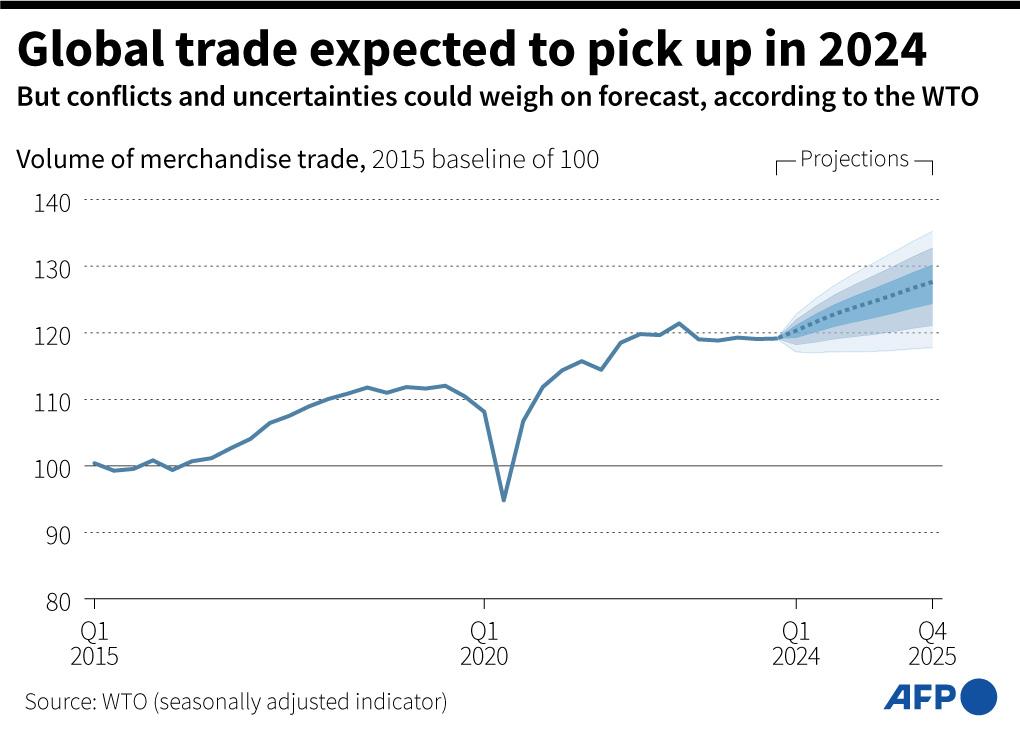Global Markets Report: Steady but Slow Growth Ahead

Introduction
The global economy is currently facing a unique set of challenges, with divergent growth patterns across advanced and emerging markets. The Steady but Slow: Resilience amid Divergence report provides a comprehensive forecast of the global economy for the next few years. This article will provide an overview of the report's key findings, as well as some of the key takeaways for businesses operating in the global market.
Global Prospects and Policies
The report predicts that global growth will be steady but slow, with a slight acceleration for advanced economies and a modest slowdown in emerging market and developing economies. The report also predicts that global inflation will decline steadily, with advanced economies returning to their inflation targets sooner than emerging market and developing economies.
Feeling the Pinch? Tracing the Effects of Monetary Policy through Housing Markets
The report examines the effects of monetary policy on housing markets, with a focus on the impact of interest rate changes on the housing market in the US. The report finds that changes in interest rates have a significant impact on the housing market, with higher interest rates leading to lower housing prices and higher mortgage rates.
Slowdown in Global Medium-Term Growth: What Will It Take to Turn the Tide?
The report analyzes the factors that could contribute to a slowdown in global medium-term growth. The report suggests that a combination of policy measures, such as fiscal stimulus and monetary easing, could help to turn the tide and drive growth. The report also highlights the importance of addressing structural issues, such as inequality and infrastructure deficits, to support long-term growth.
Trading Places: Real Spillovers from G20 Emerging Markets
The report examines the potential for real spillovers from emerging market economies, with a focus on the G20 emerging markets. The report finds that emerging market economies have the potential to drive global growth through their exports and investments in advanced economies. The report also highlights the importance of addressing trade barriers and other regulatory challenges to unlock the full potential of emerging market economies.
Conclusion
The Steady but Slow: Resilience amid Divergence report provides a comprehensive forecast of the global economy for the next few years. The report predicts that global growth will be steady but slow, with a slight acceleration for advanced economies and a modest slowdown in emerging market and developing economies. The report also predicts that global inflation will decline steadily, with advanced economies returning to their inflation targets sooner than emerging market and developing economies. The report suggests that a combination of policy measures, such as fiscal stimulus and monetary easing, could help to turn the tide and drive growth, while addressing structural issues, such as inequality and infrastructure deficits, is crucial to support long-term growth. The report also highlights the potential for real spillovers from emerging market economies, with a focus on the G20 emerging markets. Overall, the report provides valuable insights for businesses operating in the global market, helping them to navigate the complex and ever-changing global economy.
global economy analysisglobal growth forecastglobal prospects and policiesmonetary policy effects on housing marketslowdown in global medium-term growthfiscal stimulus and monetary easingstructural issues in global economyreal spillovers from emerging market economiesG20 emerging markets analysisemerging market economies growthglobal market analysis and trendsglobal market insightsglobal market forecastglobal market outlookglobal market research





